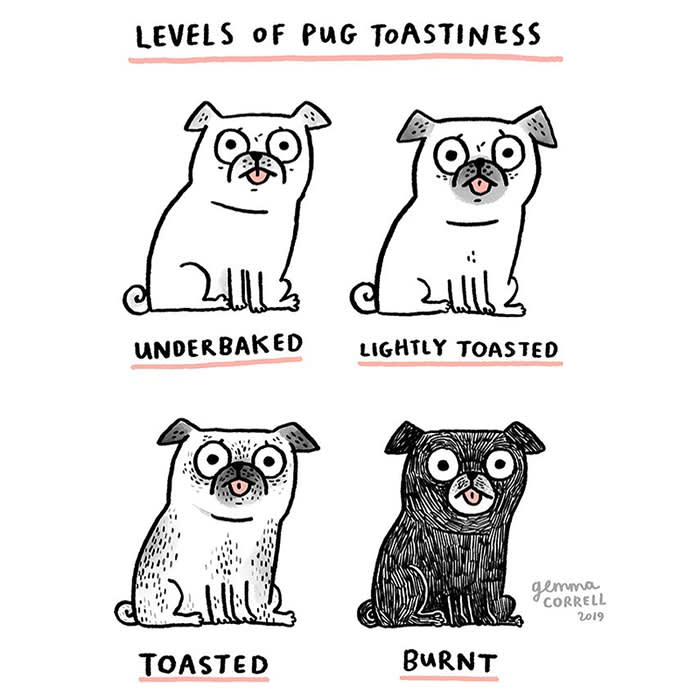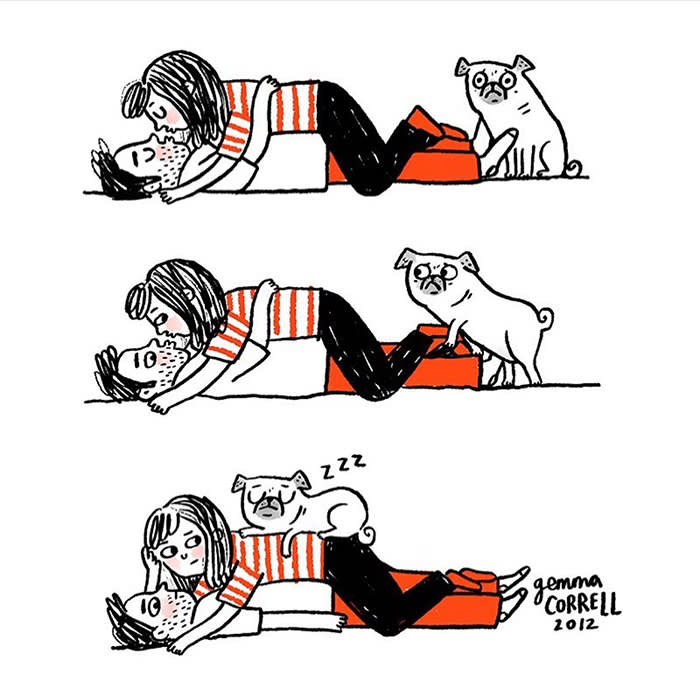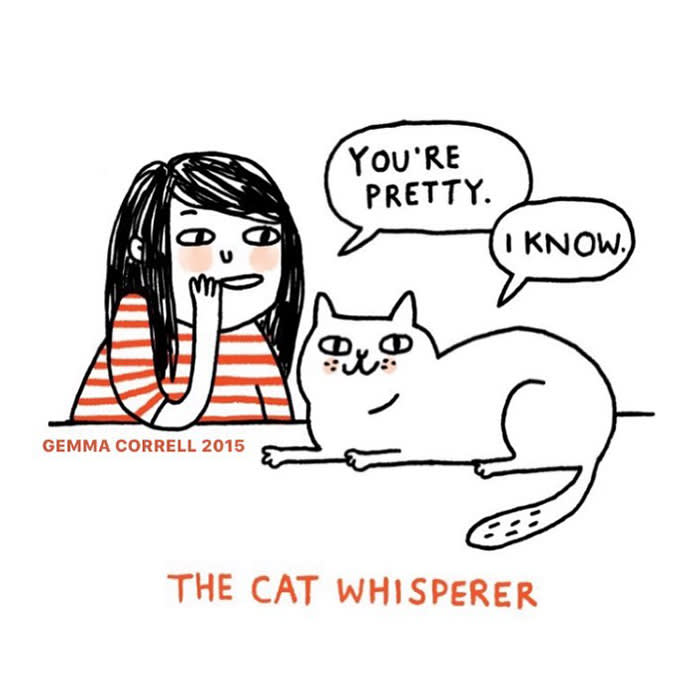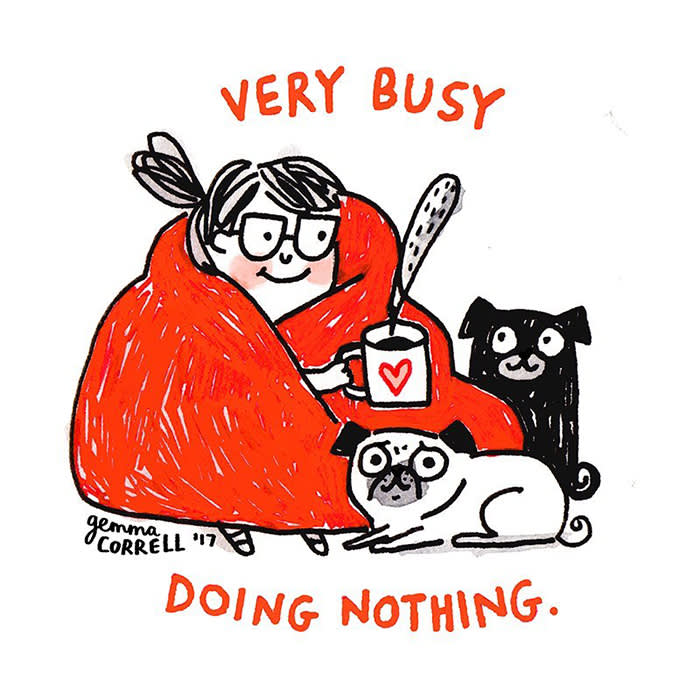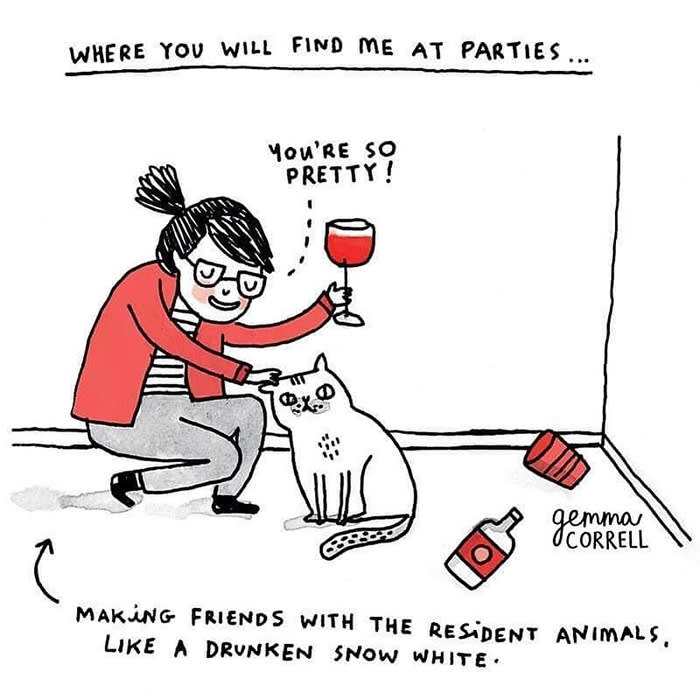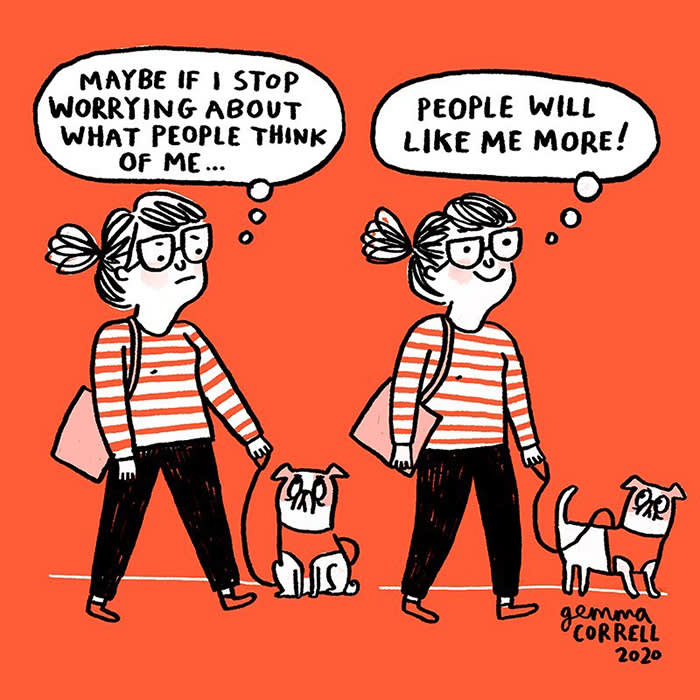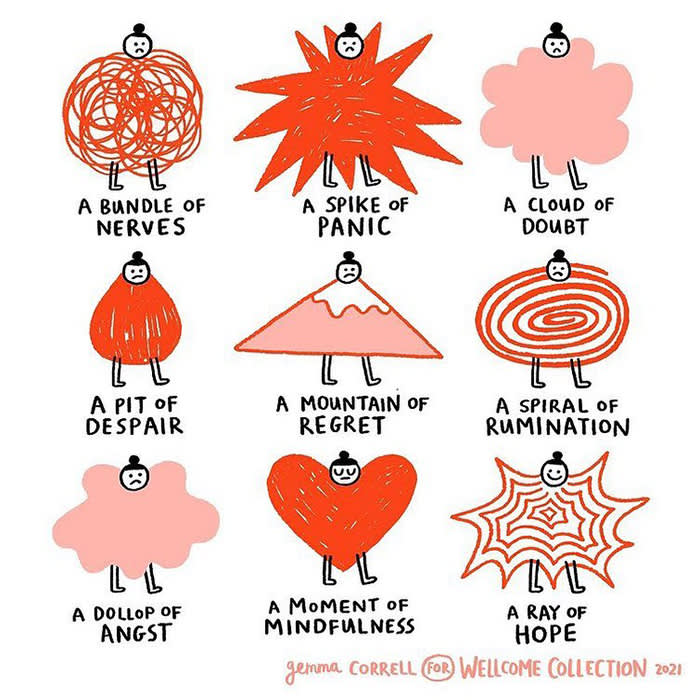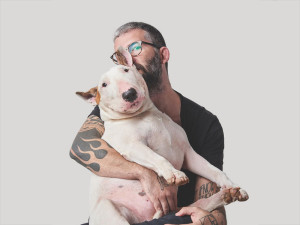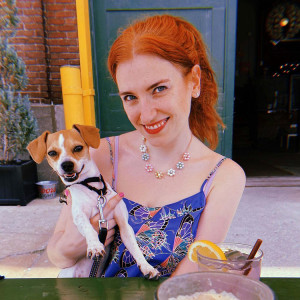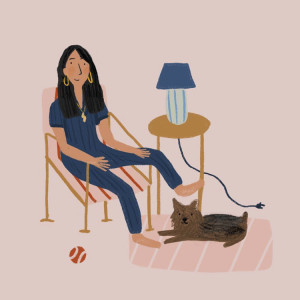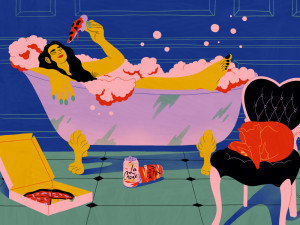Gemma Correll Talks Pug Life and Mental Health
How the illustrator’s rescue dogs improve her psychological well-being. (Spoiler: Pugs make pretty great weighted blankets.)
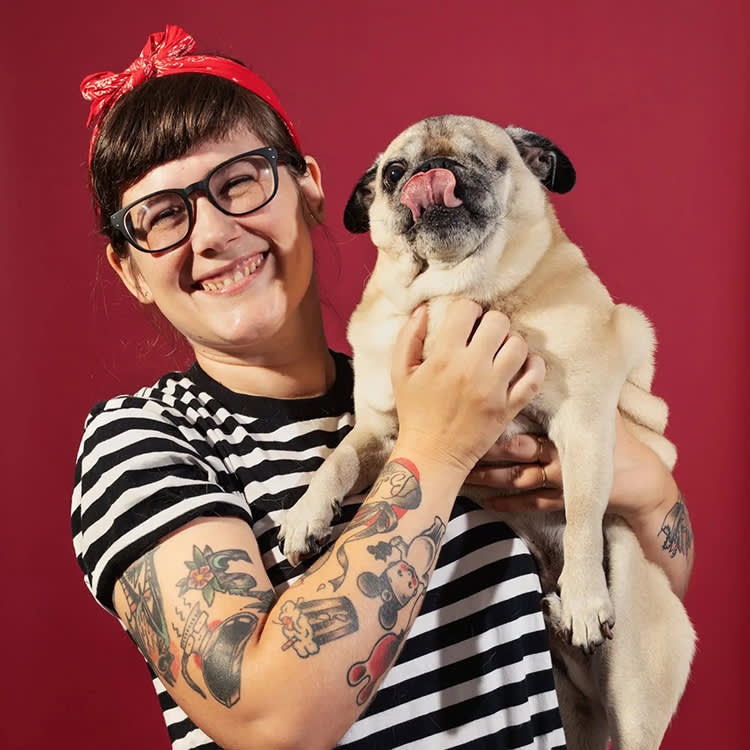
Share Article
Illustrator Gemma Correllopens in a new tab has made a name for herself in her two very specific areas of expertise. She’s masterful at creating witty, all-too-relatable cartoons that unpack the anxiety and depression that she suffers from. Also, she has an unflagging obsession with Pugs. (Yup, just Pugs.)
Oftentimes, the two converge — as they do in several of her books, including A Pug’s Guide to Etiquette and Doodled Dogs for Dog People. So there is possibly no one (well, without a medical or academic degree) who’s more qualified to discuss the link between canines and mental health than this UK-born, California-dwelling artist who regularly contributes to the satire site The Nib.
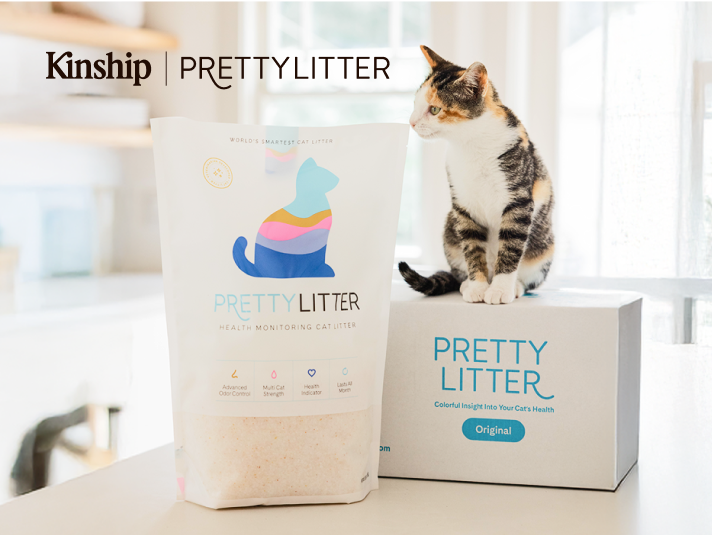
Save on the litter with color-changing tech that helps you better care for your cat.
In honor of Mental Health Awareness Month, we reached out to Correll to ask about the positive impact her trio of Pug rescues (the delightfully named Mr. Pickles, Bean, and Zander…who’s technically half-Chihuahua) have on her psychological well-being.
Why Pugs, in particular?
I fell in love with them when me and my then boyfriend — now husband — first came to America on vacation. We were in San Francisco and happened to be in the park when they had a Pug meet-up going on. There were, like, 50 of them in this park! And I’d never really seen a Pug in real life before then. They were so funny running around and playing with each other, just goofballs. We both fell in love with them right then. They have so much personality in such a tiny body, and are very rarely aggressive.
How do you feel they helped you, in terms of your wellness? Which kind of emotional holes have they filled?
One big thing for me personally is that they get me outside, because I’m an introvert. I’d be very happy to be indoors all day, every day. I know that that’s not necessarily good for me, so I get a bit of exercise to feel mentally and physically well. Also there’s their ability to make me laugh. All dogs know when you’re feeling bad. They seem to have a sixth sense about it, and they’ll come in and snuggle up with you. Bean will come in if I’m upset and sit on me or lick my face or something ridiculous like that. And you can’t not laugh however bad you’re feeling when you’ve got this little, tiny thing piled up in your face.
To what extent do your dogs creatively influence you?
I tend to slip them into a lot of my comics, even if they’re not the central theme. But I do make a lot of comics that are about Pugs, because my comics are really personal. And my dogs are with me the majority of the time.
How did you end up painting a mural at the Pug Nation rescue near LA?
I’ve worked with quite a few pug rescues now, because I’d like to do what I can to help them. I guess, for me, the best thing I can do is to donate my art in some way. So I’ve made a lot of different T-shirts for various rescues around the US and Canada and UK. I’ve done quite a lot of events as well: So if a rescue is having an event, I’ll do pet portraits, or sell or donate some items to raffles. Pug Nationopens in a new tab was moving to a new location which has this really nice backyard for the Pugs. The fence was plain black, and they just wanted to brighten it up a bit. I wanted to make something that was joyful, so I decided to draw these dancing Pugs.
Was that your first Pug mural?
No, I’ve done a few before. I did one a couple of years ago before the pandemic in Mexico City. That was also dog-themed. That was really fun because it was in public. Lots of people would come past with their dogs and take pictures of their dogs next to the mural, which was really cute.
How do your dogs fit into your creative process?
I technically have a studio — a separate room in my house. But they prefer it if they can all kind of be sitting on me at the same time, which is difficult if I’m in a chair. So I do a lot of work on the couch. I use a drawing tablet, so it’s pretty easy to do that. Pugs just love to be close to you. Sometimes they’ll have little battles where one will squeeze a little closer, and the other one will try and get even closer to me. And then they’ll all end up on me — like one on my shoulder, one behind my back, and one on my lap.
So you’re basically telling me your dogs are like cats?
Very cat-like actually! The way that they like to be on laps and like to sleep a lot. Yeah, they definitely have some cat-like attributes.
So much of your work is about working through anxiety and other stressors. But at the same time, your pugs are jockeying for affection and closeness. What does that feel like, wrestling with all of these tough ideas while you’ve got this onslaught of love coming at you at the same time?
It’s actually great because they often bring me out of overthinking, just by kind of moving and jostling around. Or one of them will get up and need to go outside for a pee, and they’ll also snap me out of some spirals or if I’m wrestling with an idea. Going for a walk is really helpful, but I don’t necessarily take the initiative to do that by myself. I’ll just sit and stew. And also they’re kind of weighted, like weighted blankets. So it’s like having little warm, very weighted blankets all over me.

Nisha Gopalan
Nisha Gopalan has been a writer/editor for The New York Times, New York magazine, Entertainment Weekly, Variety, The Hollywood Reporter, and NYLON magazines. She currently resides in Los Angeles.
Related articles
![Rafael Mantesso & Jimmy]() opens in a new tab
opens in a new tabRafael Mantesso’s Muse, Jimmy, Helped Him Draw A New Path
The Insta-famous Brazilian illustrator on making art, living with autism, and loving a Bull Terrier.
![Artist, Siobhán Gallagher holding a dog.]() opens in a new tab
opens in a new tabIllustrator Siobhan Gallagher Draws from Her Life with Porky
“He has a little brother energy that is almost subconscious to us. That’s the kind of character presence that he’s brought to my comics.”
![An illustration of a woman and her dog]() opens in a new tab
opens in a new tabAndrea Cáceres’ Art Captures the Pet Parent Condition
From mental health tips she learned from her dogs to the shame of running out of poop bags, her illustrations are playful and relatable.
![painting of a women in the bath]() opens in a new tab
opens in a new tabSofie Birkin’s Art Is Feminist, Fantastical, and Fiercely Queer
“I think the relationship between a woman and her animal companion can build out a character a lot — they’re more like witches’ familiars than pets.”
